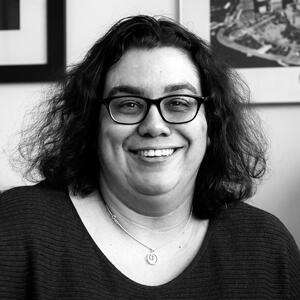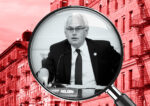For years, the New York City Council has demanded stricter penalties for landlords who allow building violations to fester.
Now, members of the largely fresh-faced chamber are leveraging a tragic January fire to enact laws to that end.
Landlords claim most of the Council’s proposals would saddle cash-strapped, regulation-weary owners with more fees and rules, making it harder for them to address violations.
Pierina Ana Sanchez, chair of the Committee on Housing and Buildings, rooted a hearing Tuesday on the package of bills on the fatal Bronx fire.
“Every single year, heat and hot water complaints spike at this time,” Sanchez said. “We were just nine days in office when we faced the biggest tragedy the Bronx has seen in decades … caused by a space heater.”
A City Council pilot program required 50 buildings in 2020 and another 50 in 2022 to install internet-ready heat sensors. The properties are chosen based on temperature violations and heat complaints.
Landlords whose monitors failed to indicate adequate heat in their buildings would be subject to daily penalties of up to $1,000.
One of the bills Sanchez introduced would expand that program to 150 buildings per borough. Owners would be subjected to four years of monitoring and bi-weekly inspections.
A point of debate during Tuesday’s hearing was how well the pilot project is working.
Rep. Richie Torres, who sponsored the initial bill as a Bronx Council member, said complaints were cut by 56 percent in the first cohort of buildings, 6sqft reported.
However, the sensors might have had nothing to do with that, the Department of Housing Preservation and Development found.

HPD’s AnnMarie Santiago
“We did see an improvement in buildings where the sensors were installed, but we also saw improvement in those buildings where no heat sensor was installed,” said AnnMarie Santiago, HPD’s deputy commissioner of enforcement.
Santiago said many owners did not comply with the program, making it even harder to gauge the effectiveness, given the already-small sample size.
Landlord group the Rent Stabilization Association opposed the bill on those grounds, commenting that there was “no clear evidence” that that program would improve heating issues.
Two other bills aim to fine owners into compliance.
One would charge landlords $500 to $1,000 each time the city inspects an unresolved housing issue.
Read more



The other, introduced by Public Advocate Jumaane Williams, would raise the penalties for HPD violations and require the agency to create a watch list that would bar owners with numerous violations from self-certifying that hazards had been fixed.
RSA protested both measures, arguing that the government is only allowed to charge inspection fees that cover their cost, not to raise revenue or punish people. The group claimed the public advocate’s bill would cost landlords the money they need to “correct critical safety issues.”
Council members drilled down on how frequently repairs go unaddressed. HPD testified that 75 percent of heating violations are one-time occurrences.
“That leaves us with 25 percent of buildings that are having repeated violations,” Sanchez said, adding that HPD in 2020 found 30 percent of landlords’ self-certified corrections were false.
HPD records for 333 East 181st Street, the building in the Bronx fire, showed it had multiple heat complaints the month before the blaze. A spokesperson for the building said those violations had been fixed before the fire.
Sanchez was not convinced. “What is HPD doing to improve the lies?” the Bronx Council member asked.
Santiago said her agency is open to a program that penalizes repeat offenders, but it has “some concerns” about Williams’ bill.
She added that only a minority of repeat offenders are ignoring violations “willingly and purposefully.”
“It could be a heat violation that’s issued this week or next week, during which period the owner is still trying to correct the original problem,” Santiago said, adding that in other cases a plumber’s work is insufficient.
The industry also opposed two other bills that called for additional notices to tenants. But RSA did back measures that would increase transparency around violations.
Two bills would require the Department of Buildings and HPD to submit photos of hazards and the fixes, once the violations had been remedied. RSA said documentation would make issues easier to identify and serve as evidence that the work had been completed.
“Owners navigate bureaucratic hurdles daily,” the landlord group commented. “These measures would be one small step in streamlining the complex compliance processes required by the agencies.”
